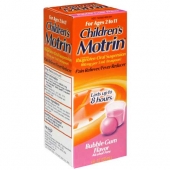
Home | Stevens Johnson Syndrome Articles | Zyprexa | What Clients Say | Results | SJS/TEN Pictures | Contact Us
Painkillers should be taken with caution
Common pain relievers known as nonsteroidal anti-inflammatory drugs (NSAIDs) should be taken with a strong dose of caution to minimize the risk of side-effects, according to Canadian doctors who developed guidelines for the medications.
NSAIDs have received a lot of bad publicity lately, with several reports questioning the safety of high doses of celecoxib (brand name Celebrex) -- a newer NSAID called a COX-2 inhibitor -- and an older medication called diclofenac. Another COX-2 inhibitor, rofecoxib (Vioxx), was withdrawn from the market after it was found to increase the risk of suffering a heart attack.
FDA questions data on Pfizer pain drug
FDA advisors to scrutinize Pfizer's Celebrex for possible expansion. November 28 2006: 11:31 AM EST
WASHINGTON, D.C. (Reuters) -- U.S. drug reviewers have questioned Pfizer Inc.'s data showing the pain reliever Celebrex was as effective as an older drug, naproxen, in treating juvenile rheumatoid arthritis, according to documents released on Tuesday.
The Food and Drug Administration will ask an advisory panel that meets Wednesday for input on whether the agency should expand the approved uses of Celebrex to include juvenile rheumatoid arthritis. The panel also will be asked if more studies are needed, an FDA staff summary said.
Painkillers should be taken with caution
Some risks of the traditional NSAIDs were well known before the development of selective cyclooxygenase-2 (COX-2) inhibitors (coxibs). Sixteen thousand deaths a year in the United States and 1900 a year in Canada were blamed on NSAID-induced gastric perforations, obstructions and bleeds. NSAID use was complicated also by numerous other side effects, including hypertension, heart failure and renal insufficiency.
The coxibs were developed as a solution to the gastrointestinal (GI) toxicity of NSAIDs. Randomized controlled trials, designed to demonstrate a decreased rate of gastric perforations, obstructions and bleeds, were the first large-scale trials evaluating the safety of coxibs compared with traditional NSAIDs. [more]


